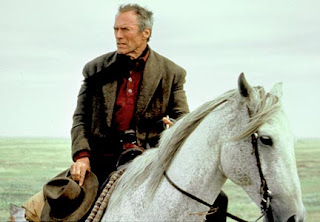Twenty years ago this fall, I began my studies at Duke University School of Law. Amid the required first-year classes on Civil Procedure, Contracts, Criminal Law, and Legal Research and Writing was a seemingly typical class on Torts, taught by a young professor named Jerome Culp. Torts is the area of law which encompasses many of the reasons people sue one another—assault, battery, negligence, defamation, medical malpractice—but more broadly it can be described as the area of law which governs how we are to treat one another.
Professor Culp, a scholar in the field known as Critical
Legal Studies, was not content to teach the basic rules of the field—in fact,
he considered that beneath us and expected us to learn these on our own time,
outside of class. Instead, he believed
the proper use of our time together was to foster in us an awareness of the
role that power, race, and gender play in legal norms, and the degree to which
“the law” becomes both the means of execution and the camouflage that conceals these deeper issues.
To make the point, Culp discussed the tort of assault. As a matter of cold law, an assault occurs
when a person experiences a threat of
physical harm by another person, whether or not any physical contact actually
occurs. The person must actually believe
she or he is in danger, and this subjective
belief must be “objectively reasonable” in the eyes of a judge or jury.
 But what is “objectively reasonable”? And what assumptions are hidden in this
legalese? Professor Culp told the story of walking down a Chicago street
in the early 1970s; he was, at the time, a large, imposing black male with a full Afro. As he
rounded a corner, he apparently caught an elderly white woman by surprise and
she shuddered in fear upon seeing him. Setting aside our anachronistic political-correctness
and enlightened sense of propriety, was her fear objectively reasonable? Would a jury at the time have thought so?
But what is “objectively reasonable”? And what assumptions are hidden in this
legalese? Professor Culp told the story of walking down a Chicago street
in the early 1970s; he was, at the time, a large, imposing black male with a full Afro. As he
rounded a corner, he apparently caught an elderly white woman by surprise and
she shuddered in fear upon seeing him. Setting aside our anachronistic political-correctness
and enlightened sense of propriety, was her fear objectively reasonable? Would a jury at the time have thought so?
That is, of course, precisely the issue at the heart of the Trayvon Martin murder case. Though the nature of the case is
different—the charges against George Zimmerman are criminal, not civil—the
reasonableness of Zimmerman’s actions hinge on the reasonableness of Zimmerman’s
fear, or stated more evenly, who was reasonably entitled to be afraid of whom,
and how does the law judge actions when each may be reasonably afraid of the
other?
During that class, the professor had us come together
several times to watch movies that examined the role of the law in
society. I don’t remember all the movies
we watched, but I remember one clearly—Clint Eastwood’s Unforgiven. In that movie, a
prostitute is beaten severely, and the local sheriff, played by Gene Hackman,
is inclined to be lenient in his punishment of the crime, so the other
prostitutes pool their resources to hire a gunslinger to exact vengeance. A young man called “the Kid” has romantic
ideas of the Old West and recruits Clint Eastwood and Morgan Freeman to join
him as hired avengers, but the Kid soon realizes he is in over his head.
 And intriguingly, Unforgiven
provides not just a lens through which to view the Martin case, but a prism
which, as we turn it, radically changes how we see the individuals and their
underlying motivations.
And intriguingly, Unforgiven
provides not just a lens through which to view the Martin case, but a prism
which, as we turn it, radically changes how we see the individuals and their
underlying motivations. Is Zimmerman the Clint Eastwood gunslinger, hired to provide protection when traditional law enforcement could not be counted on? Is he the cowboy who beat up the prostitute, unfairly let off lightly by the sheriff in the interest of civic expediency? Or is he the Kid, motivated by false images of machismo to engage in violence that spirals beyond his control?
And is Martin the analog of the prostitute, the silent presence (or, in Martin’s case, the absence) whose victimization sets the entire course of events into action? Or is he the abusing cowboy whose initiating violence triggers his own helpless demise? And could these all be true at the same time?
The ways that we call on narrative to explain and understand
our lives and our society will often predetermine our judgment as to who was
right or wrong, and the law is less a ruler we use to judge conduct than a
mirror which reflects back to us who we truly are, and who we expect ourselves
to be. So we must ask, who is the law
protecting, and who is it placing in jeopardy, forcing them to protect
themselves? Quite simply, the verdict
will tell us whose fear we most identify with—in a way, we will be identifying
ourselves.
John Carter is a lawyer and Baptist minister living in Nashville, TN. You can follow him on Twitter @roguebaptist.
You can follow On Pop Theology on Twitter @OnPopTheology or like us on Facebook at www.facebook.com/OnPopTheology.
You can follow On Pop Theology on Twitter @OnPopTheology or like us on Facebook at www.facebook.com/OnPopTheology.
You might also like:


No comments:
Post a Comment